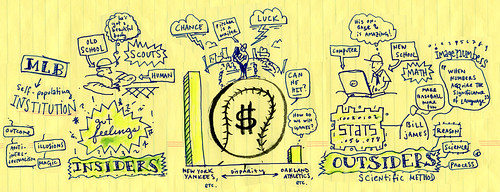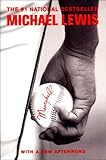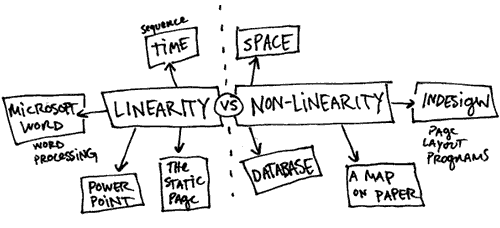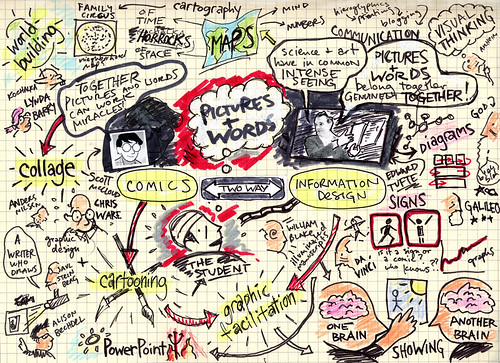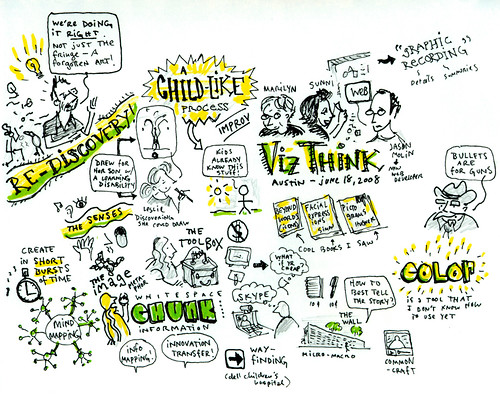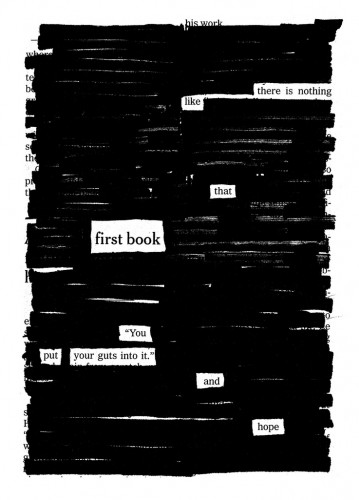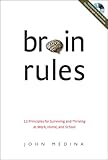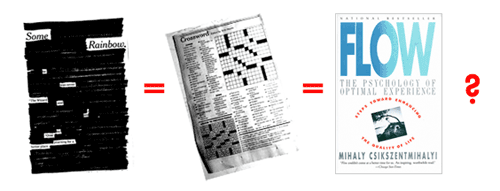Here’s a mind map of Michael Lewis’s Moneyball: The Art of Winning an Unfair Game:
Something I didn’t explore in the map was the idea of gifted children vs. gifted adults.
The main character in Moneyball is Billy Beane, the general manager of the Oakland A’s. Billy Beane started out as an unbelievably gifted young athlete–he could do anything on almost any playing field. He succeeded at everything. He was a scout’s wet dream, and ended up getting drafted right out of high school into the major leagues.
And then Billy’s troubles began.
If there was one thing Billy was not equipped for, it was failure….He didn’t know how to think of himself if he couldn’t think of himself as a success….The moment Billy failed, he went looking for something to break.
Despite his tremendous physical abilities, his inability to mentally deal with his failures is what separated him from the successful players he sat next to on the bench, like Lenny Dykstra:
Physically, Lenny didn’t belong in the same league with him. He was half Billy’s size and had a fraction of Billy’s promise – which is why the Mets hadn’t drafted him until the 13th round. Mentally, Lenny was superior, which was odd, considering Lenny wasn’t what you’d call a student of the game. Billy remembers sitting with Lenny in a Mets dugout watching the opposing pitcher warm up. ‘Lenny says, “So who’s that big dumb ass out there on the hill?” And I say, “Lenny, you’re kidding me, right? That’s Steve Carlton. He’s maybe the greatest left-hander in the history of the game.” Lenny says, “Oh, yeah! I knew that!” He sits there for a minute and says, “So, what’s he got?” And I say, “Lenny, come on. Steve Carlton. He’s got heat and also maybe the nastiest slider ever.” And Lenny sits there for a while longer as if he’s taking that in. Finally he just says, “Shit, I’ll stick him.” I’m sitting there thinking, that’s a magazine cover out there on the hill and all Lenny can think is that he’ll stick him.’”
The point about Lenny, at least to Billy, was clear: Lenny didn’t let his mind screw him up. The physical gifts required to play pro ball were, in some ways, less extraordinary than the mental ones. Only a psychological freak could approach a 100-mph fastball aimed not all that far from his head with total confidence. “Lenny was so perfectly designed, emotionally, to play the game of baseball,” said Billy. “He was able to instantly forget any failure and draw strength from every success. He had no concept of failure. And he had no idea where he was. And I was the opposite.”
As J.K. Rowling said in her address to Harvard, the ability to overcome failure might be the important ingredient in successfully transitioning into adulthood.
Eventually, Beane went on to be one of the most successful managers in baseball. How? He learned from his failure, and started looking for young players the opposite of him!
So, as Sam Beckett said, “Ever tried. Ever failed. No matter. Try Again. Fail again. Fail better.”
Be unafraid!
(For real reviews of the book, see Mark Larson and Tim Walker. Tim also has a great post on the benefits of failure.)
